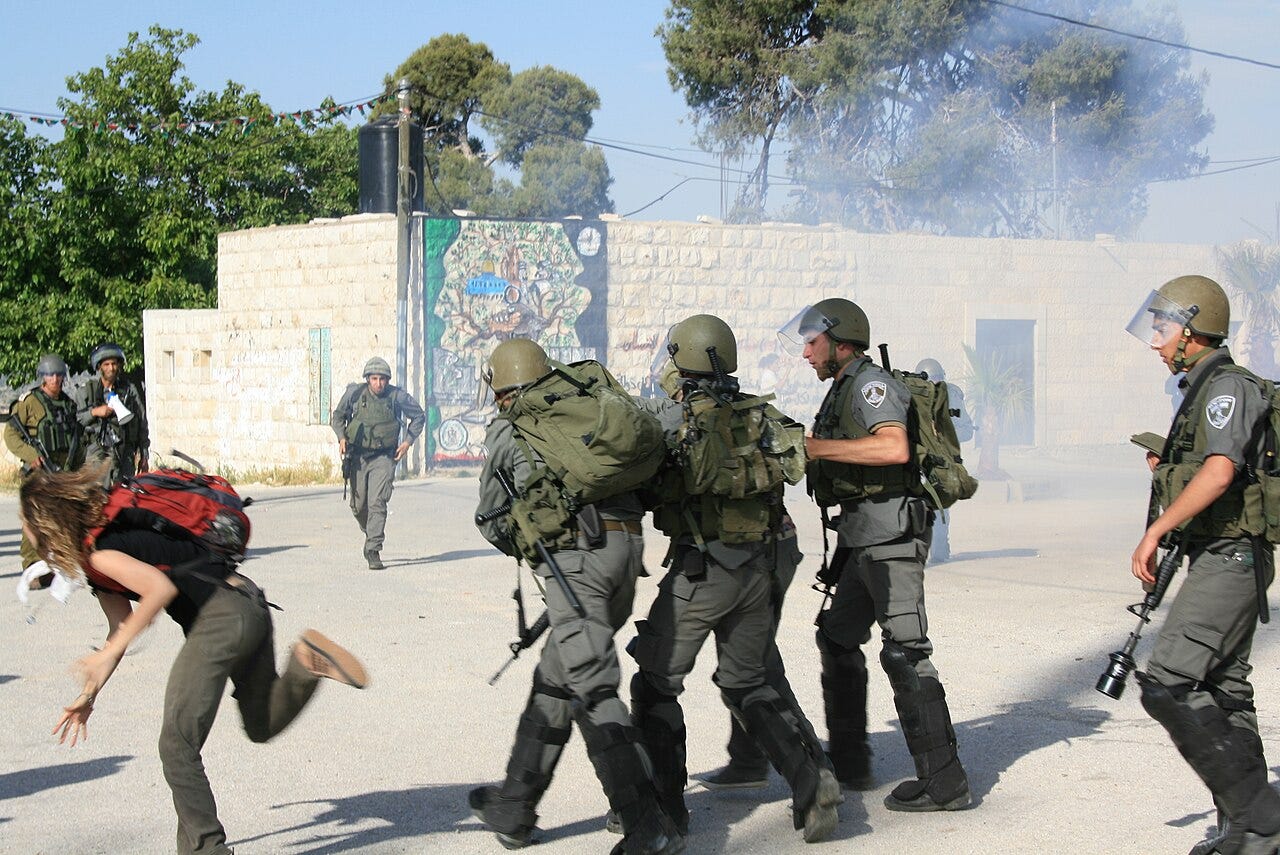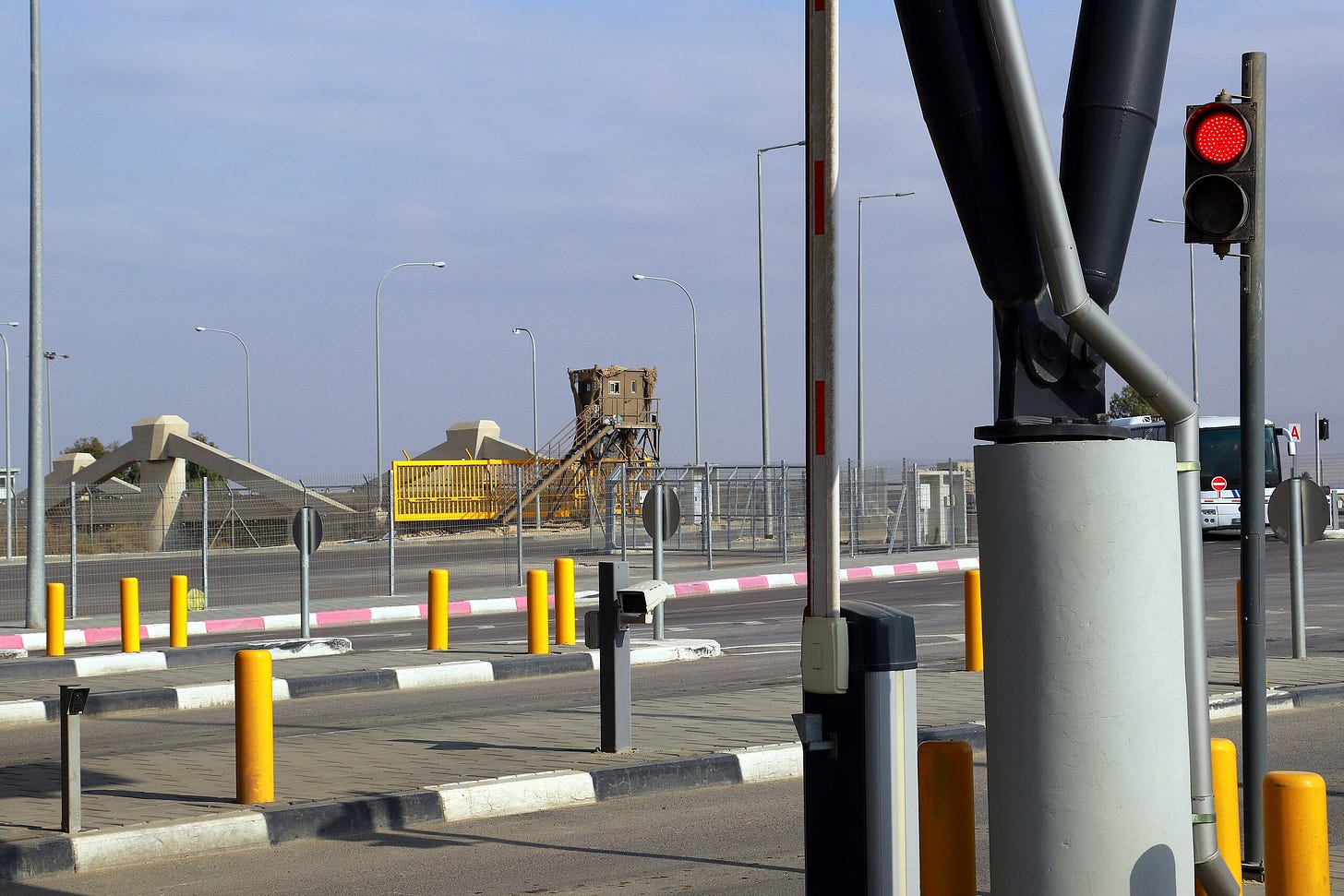Three Palestinian-Kiwis escape into Jordan on bus after special flights via Tel Aviv impossible
Violence and discriminatory travel laws strand New Zealanders of Palestinian descent in the occupied territories unable to enter Israel to avail of government-arranged evacuation flights

EXCLUSIVE: At least three New Zealanders of Palestinian descent have escaped on a bus into Jordan after being stranded in the occupied territories by discriminatory travel laws and violence, unable to avail of government-arranged flights from Tel Aviv.
A child and two adults left the West Bank city of Ramallah at 6am (local time) on Monday and crossed into Jordan via the Allenby Bridge crossing.
The relieved Kiwis, who did not want to be named, were now expected to fly home this week.
It is understood 13 other Kiwis of Palestinian descent were expected to take a specially-arranged bus into Jordan from Ramallah after being trapped in various parts of the occupied Palestinian territories.
The buses have been organised by the Canadian government, alongside New Zealand and Australian consular staff.
Another bus is expected to leave this week, with the Allenby Bridge crossing now only open seven hours per day with numbers who can pass restricted.
Travel around the occupied Palestinian territories is considered extremely dangerous.
There have been at least 57 Palestinians killed in the West Bank since Hamas breached Gaza’s confines to launch its surprise attack on Saturday October 7, taking over military bases, towns and settlements. It resulted in an estimated 1400 deaths.
A indiscriminate bombardment of the 140-square-mile Gaza strip by the Israeli army since the Hamas attack has killed at least 2750 people, including over 800 children, according to the Palestinian Health Ministry.
A relative of one of the three travellers told In Context checkpoints and settler violence had made the journey across the Jordanian border too fraught for them without diplomatic assistance.
“They had to use very dangerous roads and had to avoid checkpoints and settlers attacking people,” she said.
Her relative had planned to stay in a small West Bank village with family for six weeks, but when the current crisis broke out after a week she quickly travelled to Ramallah due to its proximity to the Jordanian border.
The woman had high praise for New Zealand ambassador to Egypt Amy Laurenson, who she said had played a pivotal role in organising safe travel into Jordan
“She actually was amazing. She contacted us, created a WhatsApp group to just update everyone on developments on a daily basis, of how and when the borders would be open,” she said.
The Ministry of Foreign Affair and Trade (MFAT) confirmed to In Context it had given consular assistance to the travellers, but declined to give any more details for privacy reasons.
The ministry also declined to comment on the evacuation buses or how many Kiwis passport holders had been booked on these.
The Canadian government this morning said its first bus had entered Jordan and confirmed Kiwis were on board.
“I am elated to announce that the first group of Canadians have now safely crossed from the West Bank into Jordan,” Canada’s Foreign Affairs Minister Mélanie Joly announced on social media.
Travel law impedes Palestinian-Kiwis
As the situation in the region worsened the New Zealand Government last Thursday announced it was partnering with Etihad Airways to fly New Zealanders to take New Zealanders and others from Pacific countries out of the conflict zone via Tel Aviv.
However, due to discriminatory Israeli travel laws the New Zealanders of Palestinian descent cannot use their Kiwi passports to enter Israel and instead need a Palestinian passport/travel document to leave Gaza and the West Bank through the Rafah and Allenby Bridge crossings.
Not only were Palestinian-Kiwis trapped throughout the occupied territories unable to avail of the government’s flights home from Tel Aviv, they were also unable to safely reach these designated border crossing at Allenby Bridge by themselves. The Rafah crossing is closed.

MFAT did not respond when asked if officials had taken into consideration the discriminatory travel laws affecting Kiwis of Palestinian descent when it had initially made plans to help citizens leave the conflict zone on flights out of Tel Aviv.
A spokesperson for the Ministry of Foreign Affairs and Trade said: “We recognise that the situation for New Zealanders in the Occupied Palestinian Territories is more difficult and complex.
“We are in regular contact with them and they remain a high priority for us. We are in close contact with international partners and are coordinating our efforts.”
The spokesperson added options to depart were extremely limited and the situation remains very challenging.
Palestinian Solidarity Network Aotearoa spokesman John Minto raised the issue with MFAT last Thursday evening.
Although he was happy transport had been arranged for the group, Minto said the issue of Israel’s refusal to recognise New Zealand passports held by those of Palestinian descent should have been addressed before. He said his group had raised the issue in meetings with MFAT officials last year.
Israel ditched restrictions for Palestinian-Americans holding US passports on September 11, meaning they can go through security checkpoints into Israel unimpeded.
“Despite Israel discriminating against Palestinian-New Zealanders, this country does provide visa-free travel for young Israelis but, in a typically racist, one-sided fashion, not for young Palestinians,” Minto said.
The government must ensure all New Zealanders be treated equally by foreign governments and insist any discriminatory rules around travel be removed, he added.
Plight of Gazans
Gaza now faces a genocidal onslaught from the Israeli army after it ordered 1.1 million residents further south into Gaza ahead of an expected ground invasion, a move the UN says is impossible. Some Israeli officials have publicly suggested Egypt open up its border to Gazans.
It’s 2.3 million population, governed by Hamas since 2007, has been cut off from food, water, fuel, electricity and medical supplies after a complete siege announced by Israel on Monday. The Israeli government has said it would only lift the total siege when Hamas released an estimated 150 prisoners it took back to Gaza during its raids.
Collective punishment of a civilian population of this kind is a war crime under the Geneva Convention. However, the European Union, the United States and other Western nations, including New Zealand, have not condemned the move, instead declaring unequivocal support for Israel’s “right to defend itself”.
The Palestinian-Kiwi relative In Context talked to said she was following Gazans’ fight for survival through reports of Palestinian journalists on the ground. It bears heavily on her.
“It make me feel the world is dark,” she said. “This week literally was the hardest week for the whole family… I actually cried all night.”
What adds to the pain is the way Israel’s war crimes are reported and spun as something different, and how Palestinian suffering is obscured.
“At the least don't dehumanise us,” she said.
“It actually breaks my heart. I used to watch the New Zealand media and all its talking points, stories from one side about Israel, but no stories about any child in Palestine, about the families, the doctors, about the journalists, nurses killed. They don't write about these people. Well, they are people too. They have stories. They have dreams. But nothing. Zero stories.”
Hundreds of tonnes of lifesaving aid, including food, water and medical supplies are currently stacked in trucks that have formed a stationary convoy at the Egyptian side of the Rafah border crossing, waiting to get through to Gaza.
Israel has put Gaza under siege for over 15 years, controlling and restricting the movement of goods, including food and medical supplies. Over 75 percent of Gazans are registered as refugees and over half the population are children.



